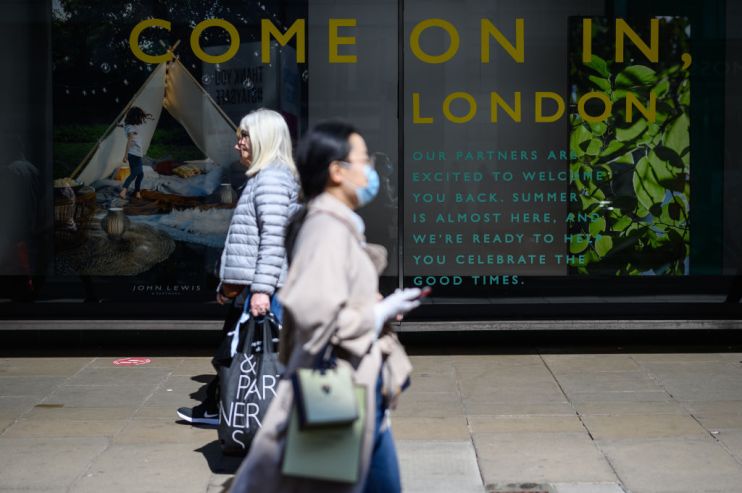Cost of living crunch already hitting consumer spending even before inflation peaks

The cost of living crunch is prompting Britons to rein in spending even before inflation reaches its expected summit this spring, reveals new research published today.
An erosion in household budgets triggered by inflation hitting its highest level in nearly three decades weighed on consumer spending last month, according to figures from Barclaycard.
UK spending jumped 7.4 per cent in January, the weakest reading since April 2021 when Britain was just emerging from the most onerous Covid-19 restrictions.
Barclaycard’s data, which covers around £1 in every £3 spent using credit and debit cards, reveals the cost of living squeeze is steering the UK economy toward a period of cooler growth.
However, the slowdown in purchases indicates the period of economic sluggishness has already started and is likely to worsen.
April is set to see pressure on household finances come to a head, with a 1.25 percentage point national insurance hike, a 54 per cent uplift to the energy bill cap and inflation of 7.25 per cent all scheduled to happen in the month.
“The rise in the cost of living … clearly impacted consumer spending levels in January,” Jose Carvalho, head of consumer products at Barclaycard, said.
Despite the Bank of England expecting this cost of living storm to reduce Brits’ living standards at the worst rate since 1990, Governor Andrew Bailey last week ignited fury after he asked workers to exercise restraint over demanding pay rises from their employers in order to curb soaring inflation.
The Bank last week added to financial pressure on households by lifting rates at back-to-back meetings for the first time since 2004, sending borrowing costs to 0.5 per cent.
Concerns over a deterioration in future finances has driven Brits to cut back on non-essential spending.
Non-essential spending growth slowed markedly in January from December, while around nine in 10 people think inflation will hit their future household budgets.
Barclaycard’s research illuminated the heavy blow Plan B measures delivered to Britain’s high streets.
Face-to-face retail spending shrank 8.5 per cent in January, while spending at restaurants dropped nearly 20 per cent.